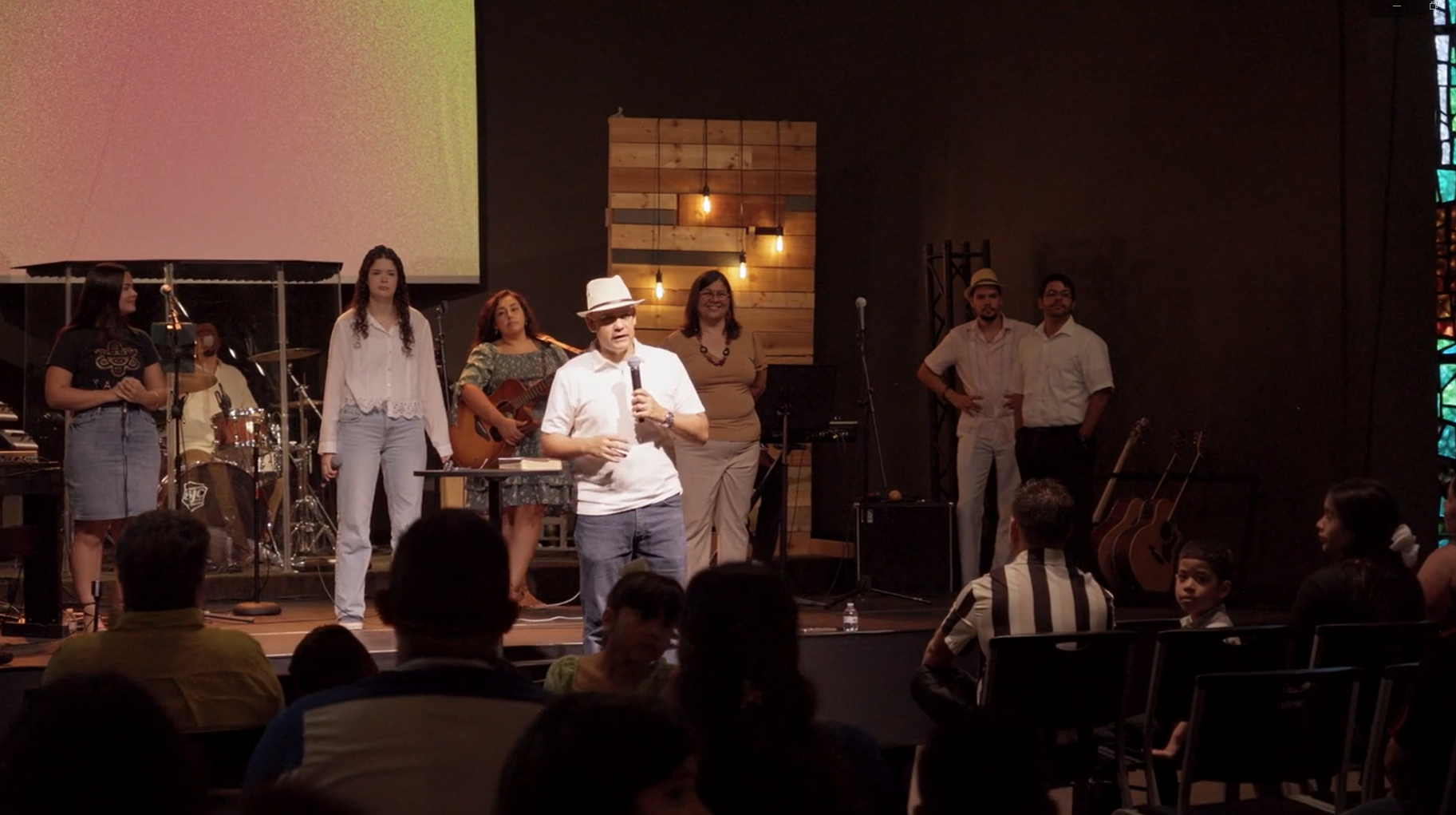From the “Baptist Bishop”: How Does Baptist Structure Work Anyways?
First of all, I write this title in jest. I’m not the Baptist Bishop nor do Baptists have Bishops.
But Baptist structures can be hard to understand sometimes, and this question comes up from time to time. Or at least the joke comes up from time to time.
Many people, including many life-long Baptists, don't know much about Baptist structure and hierarchy. So, here's a quick explainer on how Baptist churches and organizations are structured. I hope it can give you a little clarity the next time you or someone else asks one of these common questions:
BAPTISTS ARE AUTONOMOUS
You hear the word “autonomy” a lot in Baptist circles, but what does that even mean? UBA's Associate Director Kevin Abbott answers the question this way:
Baptist autonomy means each church is self-governing or self-directing. An autonomous church governs itself without any outside human direction or control. Of course, no church is absolutely autonomous, because a church should always recognize the control and authority of Jesus as Lord.
So sometimes, we get asked if we can fire or hire pastors or other staff within our churches. Autonomy also means that each Baptist church, among other things, selects its pastoral leadership, determines its worship form, decides financial matters, and directs other church-related affairs without outside control or supervision.
Baptist denominational organizations such as associations of churches and state and national conventions have no authority over another Baptist church. For any one of these organizations to attempt to exercise control over an individual church is to violate a basic Baptist conviction about how churches work.
Unlike other pyramid-shaped denominational structures with churches at the bottom and a single authority at the top, Baptists have historically abhorred these models and preferred to put churches at the top of the pyramid with everything and everyone reporting to them.
Instead, UBA's structure is also like an upside-down pyramid. It is an association of churches, without which there would be no association. UBA's staff is hired by representatives of the churches called “messengers” to assist our churches in achieving the vision for collaboration in Houston. UBA's mission is the goal of this group of churches: to strategically advance the gospel of Jesus Christ.
In essence, not only am I not the Bishop or overseer of these churches, I have 400 bosses!
RELATIONSHIPS TO OTHER BAPTIST ENTITIES
More than 50,000 churches make up the Southern Baptist Convention (SBC), and there are 41 state conventions. It might be tempting to think of UBA as the local chapter of the Southern Baptist Convention or to think that there is a hierarchical chain of command from UBA through the state conventions and up to the Executive Committee of the SBC. But it doesn’t work that way.
Since all relationships in Baptist life are voluntary, churches decide for themselves what partners they will have. Each entity is autonomous.
Not all Baptist churches in Houston are part of UBA, and not all UBA churches are part of a state convention or the national Southern Baptist Convention. Churches get to decide for themselves.
UBA AND THE COOPERATIVE PROGRAM
---------------------------------------------------To really understand how the association is funded, read this article. Let me first say that I highly encourage all UBA churches to support statewide, national, and international missions through direct participation in a wide variety of partnerships and financially supporting the Cooperative Program.
However, a common misconception churches have is that SBC churches also fund their local association through their giving to the Cooperative Program (CP).
The following is taken from the CP website:
Churches support the Cooperative Program by submitting contributions through a network of state and regional Baptist conventions. Those conventions use a portion of these funds to fuel the ministry and mission goals established by their churches. Each state Baptist convention then forwards a percentage of those funds to the Southern Baptist Convention, providing financial support for Convention entities to send missionaries, train pastors and ministry leaders, plant churches, and address ethical and religious liberty concerns related to our faith. Cooperative Program funds forwarded from the states also provide support for the SBC operating budget.
Note an important word missing from this paragraph: associations. Funding for the CP goes through the state conventions, and conventions keep a portion to fund their budgets. Associations are, for the most part, not part of state convention budgets.
In Texas, the BGCT gives a very small portion of the annual Mary Hill Davis offering to UBA, and the SBTC does not contribute to UBA at all. UBA considers both state conventions valuable partners for kingdom work, but UBA is and always has been funded primarily (more than 85%) directly by our churches.
This video explains it a bit more in-depth.
Josh explains the SBC Cooperative Program and how local associations are affected by it.
CONCLUSION
Baptists have always valued both cooperation and autonomy. We know that we can do more when we work together but also want to ensure that each church can govern itself according to the Bible and personal conviction.
Holding these things in tension means that the structure, authority, and funding of Baptist organizations can get pretty confusing. Churches are autonomous, deciding who they do and don’t associate with. From there, Baptist entities work together, but they are not a hierarchy nor do they have official ties. When it comes to local associations, we answer to and are funded directly by our messengers, which frees us to be about the gospel advance in our local context.
It’s complicated, but it works.
Josh Ellis is Executive Director of Union Baptist Association. He has a PhD in Leadership Studies and has served on the UBA staff since 2005. With both practical and scholarly knowledge, he leads the association into innovative collaboration for the sake of strategic gospel advancement.
We’ll send one succinct weekly email
with the best news, events, and info
for churches in the Houston area.
Photo by Randy Fath on Unsplash











Practical ways your church can reach the nations and your neighbors during the World Cup this summer!